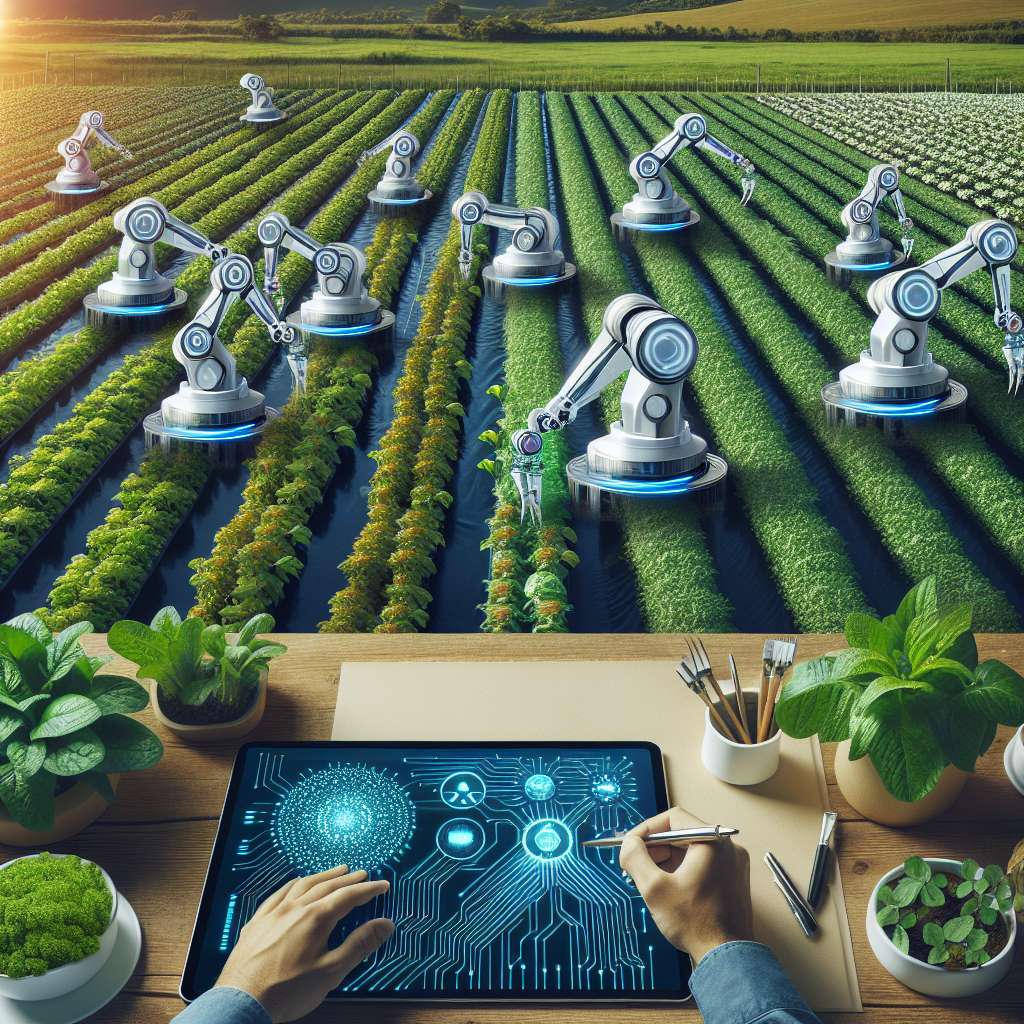In recent years, the agriculture industry has been facing numerous challenges, including climate change, population growth, and a decreasing availability of natural resources. These challenges have led to a growing need for innovative solutions to ensure the sustainability of agriculture. One such solution that has been gaining traction is the use of artificial intelligence (AI) technologies to enhance sustainable agriculture.
AI technologies have the potential to revolutionize the way we grow and produce food. By leveraging AI, farmers can optimize crop yields, reduce waste, and minimize the environmental impact of agricultural practices. In this article, we will explore how AI technologies are being used to enhance sustainable agriculture and address some common questions about this emerging field.
Benefits of AI in Sustainable Agriculture
There are several key ways in which AI technologies can enhance sustainable agriculture:
1. Precision Agriculture: AI technologies can help farmers collect and analyze data from sensors, drones, and satellites to make more informed decisions about their crops. By using AI algorithms, farmers can identify areas of their fields that need more or less water, fertilizer, or pesticide, leading to more efficient resource use and higher crop yields.
2. Crop Monitoring: AI technologies can be used to monitor the health of crops in real-time. By analyzing images of crops taken from drones or satellites, AI algorithms can detect diseases, pests, or nutrient deficiencies early on, allowing farmers to take corrective action before it’s too late.
3. Predictive Analytics: AI technologies can analyze historical data on weather patterns, crop yields, and soil conditions to predict future outcomes. By using predictive analytics, farmers can better plan their planting schedules, irrigation practices, and crop rotations to maximize yields and minimize risks.
4. Supply Chain Optimization: AI technologies can help optimize the supply chain by predicting demand for agricultural products, identifying the most efficient transportation routes, and reducing food waste. By using AI algorithms, farmers can ensure that their products reach consumers in a timely and cost-effective manner.
5. Sustainable Practices: AI technologies can help farmers adopt more sustainable agricultural practices, such as organic farming, conservation tillage, and crop rotation. By analyzing data on soil health, biodiversity, and water usage, AI algorithms can recommend practices that promote soil fertility, reduce erosion, and conserve water.
Common FAQs about AI in Sustainable Agriculture
Q: How does AI help farmers make better decisions?
A: AI technologies can analyze large amounts of data from various sources, such as sensors, drones, and satellites, to provide farmers with valuable insights into their crops. By using AI algorithms, farmers can make more informed decisions about planting schedules, irrigation practices, and pest management strategies.
Q: Is AI affordable for small-scale farmers?
A: While the initial cost of implementing AI technologies may be high, there are now affordable AI solutions available for small-scale farmers. In addition, many governments and organizations offer grants and subsidies to help farmers adopt AI technologies and improve their sustainability practices.
Q: Can AI replace human labor in agriculture?
A: AI technologies are not meant to replace human labor in agriculture but to complement it. By automating routine tasks, such as watering, weeding, and harvesting, AI technologies can free up farmers to focus on more strategic activities, such as crop planning and marketing.
Q: Are there any ethical concerns about using AI in agriculture?
A: As with any technology, there are ethical concerns about using AI in agriculture, such as data privacy, algorithm bias, and job displacement. It is important for farmers and policymakers to address these concerns proactively and ensure that AI technologies are used responsibly and ethically.
Q: What are some examples of successful AI applications in sustainable agriculture?
A: There are many examples of successful AI applications in sustainable agriculture, such as:
– Climate Corp: A platform that uses AI algorithms to help farmers optimize their planting schedules, reduce risks, and maximize yields.
– Blue River Technology: A company that develops AI-powered robots to identify and spray weeds in fields, reducing the need for chemical pesticides.
– Granular: A software platform that uses AI to analyze data on crop yields, input costs, and weather patterns to help farmers make better decisions about their crops.
In conclusion, AI technologies have the potential to enhance sustainable agriculture by optimizing resource use, improving crop yields, and reducing environmental impact. By leveraging AI algorithms, farmers can make more informed decisions about their crops, monitor crop health in real-time, predict future outcomes, optimize the supply chain, and adopt more sustainable practices. While there are ethical concerns about using AI in agriculture, it is important for farmers and policymakers to address these concerns proactively and ensure that AI technologies are used responsibly and ethically. With the right tools and practices, AI technologies can help farmers feed a growing population while protecting the planet for future generations.

